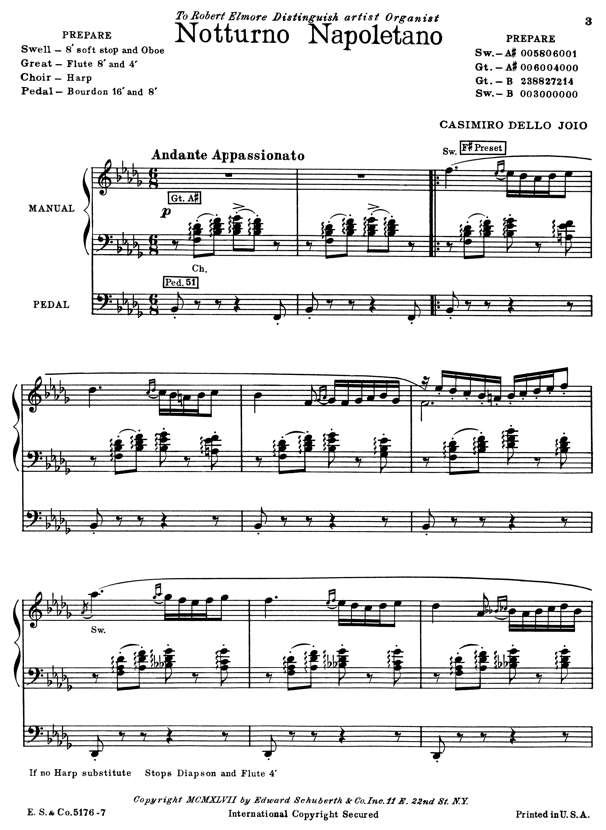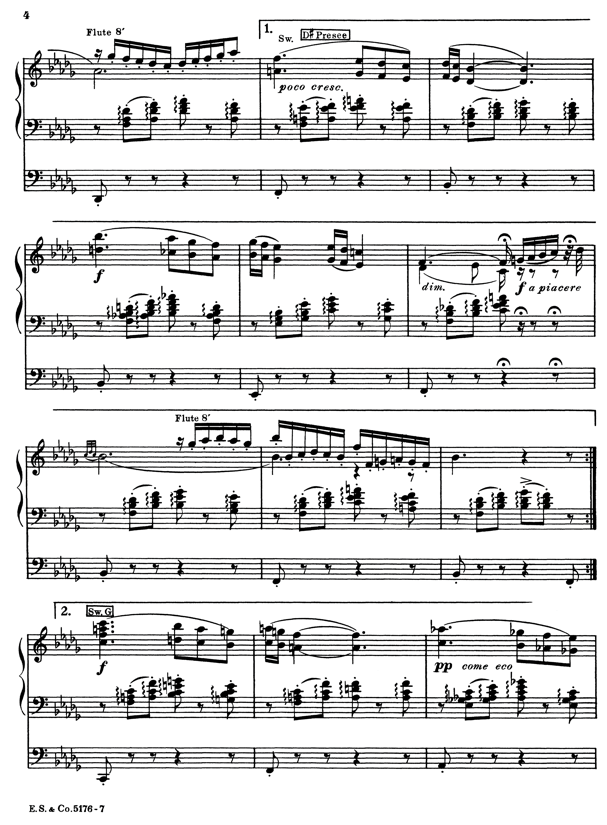Casimiro Dello Joio (originally DeGioio) was born in March 19, 1881, in Gragnano, Italy, a wine producing area in
the foothills 19 miles outside Naples. The oldest of twelve children, he was the son and grandson of organists at the village church
there going back to at least 1829. He studied organ and flute, and was a student at the Naples Conservatory. Even though his family had
lived in Gragnano for generations, Casimiro began to question, while a teenager, whether he could develop a musical career while raising
a family there. During a period of several days when a fleet of United States Navy ships docked in Naples, he learned that the band was
recruiting musicians. After auditioning and being accepted as a flutist, he enlisted for three years, after which he would receive his
US citizenship. While still in Italy, Dello Joio became a friend of the musician, Pietro Yon, who would emigrate to New York and become the
godfather of his son.
After serving in the Navy, he emigrated to New York, where he gave piano and organ lessons and became the
organist-choirmaster at the Church of Our Lady of Mount Carmel in East Harlem (II/15 Jardine, c1889), a center of the local Italian
immigrant community. During this time, he began teaching piano to Antoinette Garramone, who would become his wife, and moving to Washington
Heights. In addition, he was a vocal coach to singers for the Metropolitan Opera. Between 1918-1930, Dello Joio taught theory, piano and
organ to their only son, Nicodemo (1913-2008), renamed Norman, who would later become a noted composer and music professor. Casimiro
Dello Joio died in July 1, 1963, in New York City. In addition to this, his only published organ composition, and an edition of the Symphony
No 4 for organ by Widor, Dello Joio composed choral, vocal, piano and instrumental music. He dedicated “Neopolitan Nocturne”
to the organist and composer,
Robert Elmore (1913-1985),
who had been a student of Yon. Moderate.

